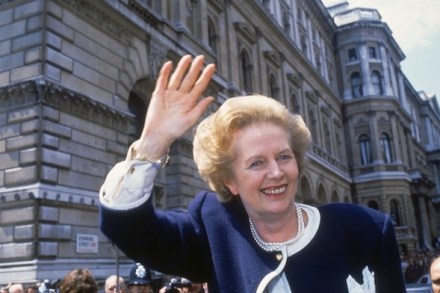The ‘Thatcher should quit’ splash that never was
When Prime Minister, Mrs Thatcher did not have a great deal to do with The Spectator. She was not hostile, but slightly suspicious and perplexed. ‘This is Charles Moore,’ I remember her saying edgily as she introduced me to the Turkish prime minister at a reception. ‘He supports us some of the time.’ After the sinking of theBelgrano in May 1982, Ferdinand Mount, then the political editor, wrote a column deploring the incident and calling for a ceasefire. The then editor Alexander Chancellor, who had incited the piece when Ferdy had really wanted to fall silent altogether, put it all over the cover. Ferdy’s was an act of near-suicidal courage, as he was just



















